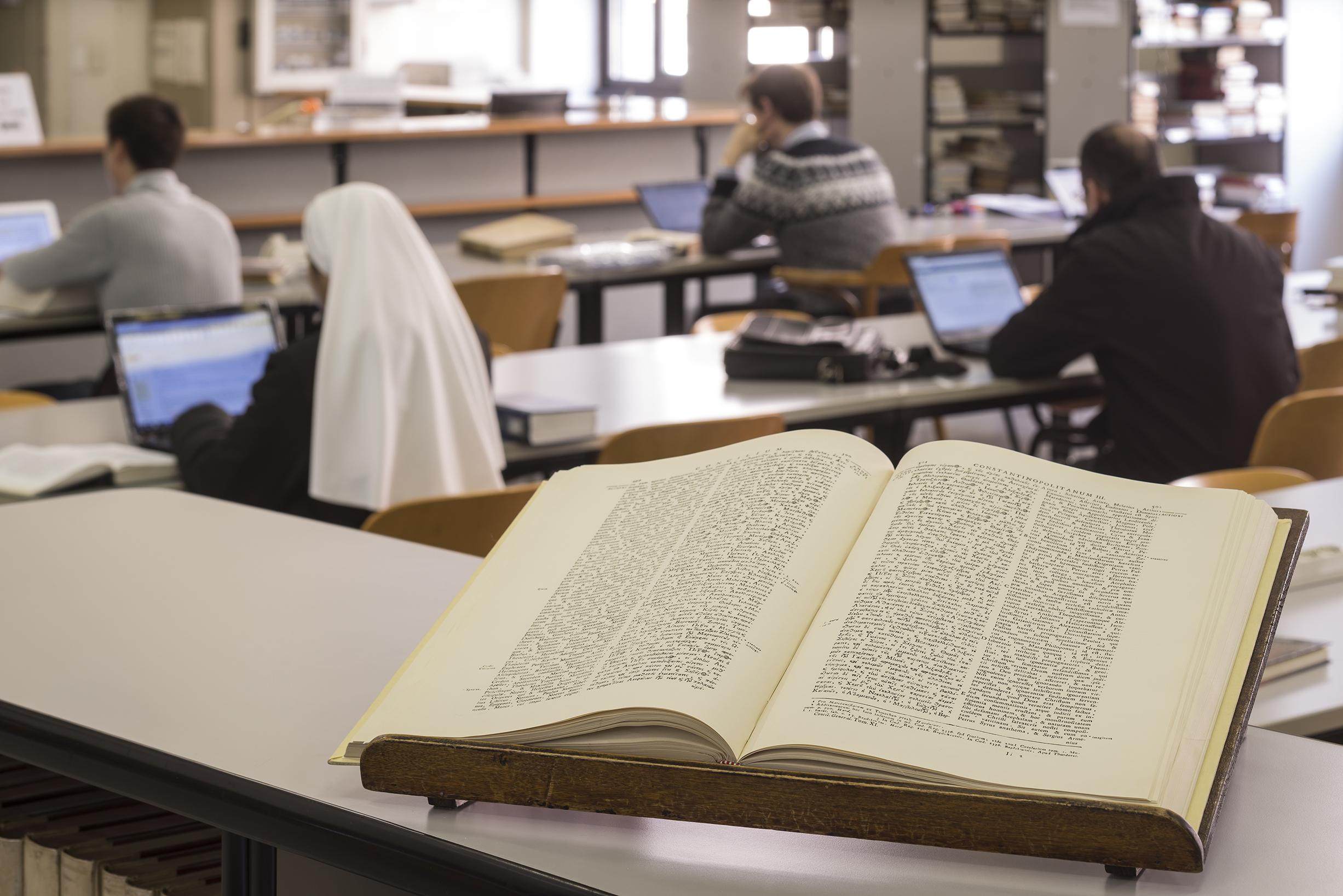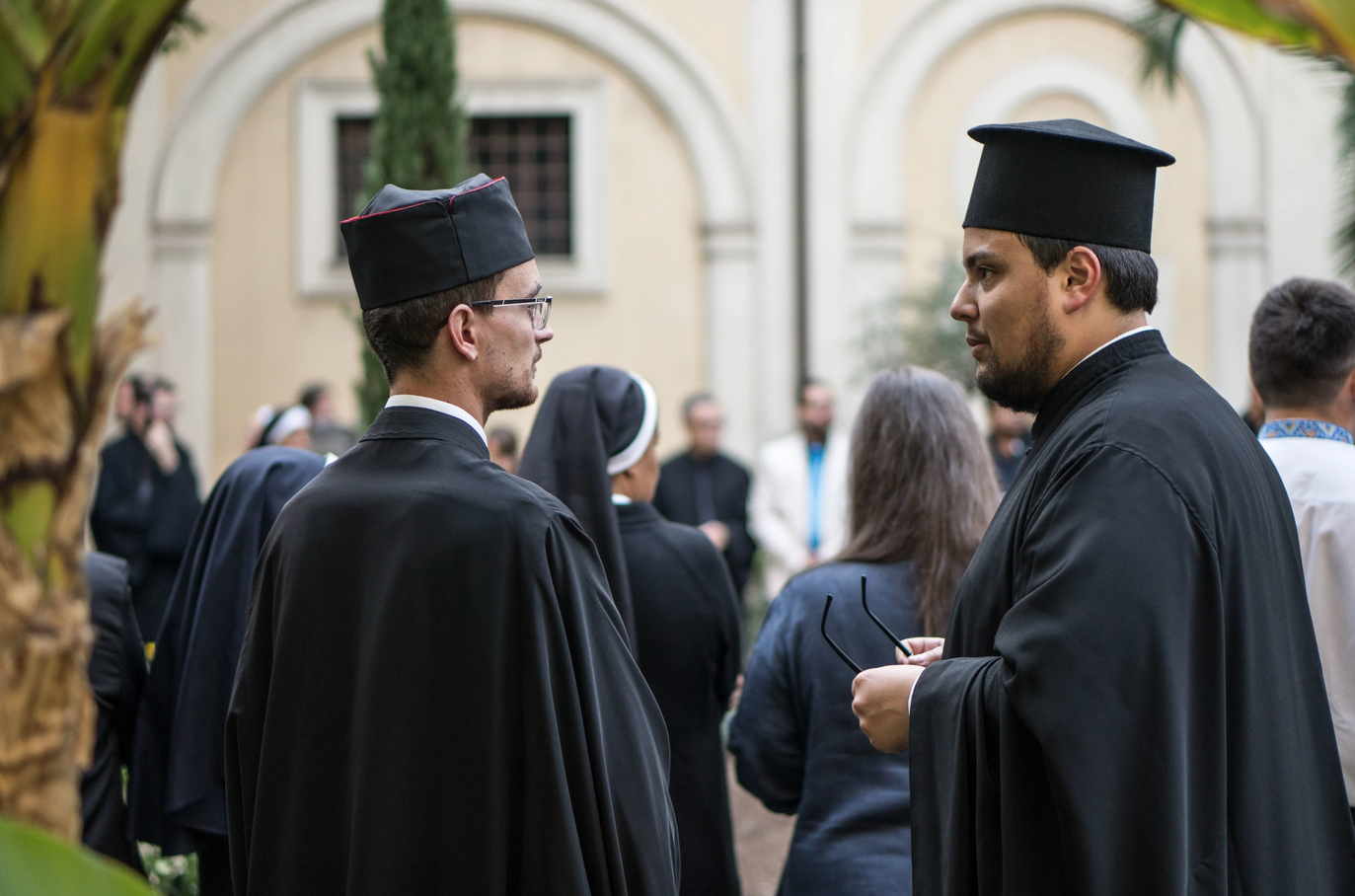- Home
- La Gregoriana
- 64 - Peace be with you all
- "Eastern" first cycle: a new service for the whole Church
Share:

The Faculty of Theology and the Faculty
of Eastern Christian Studies have launched
a new collaboration: the Eastern First Cycle.
The students broaden their academic horizons
through dialogue and mutual exchange,
for the good of the communities
that will eventually be entrusted to them.
“Research and study ought to be integrated with personal and community life, with missionary commitment, with fraternal charity and sharing with the poor, with care of the interior life in relationship with the Lord”, Pope Francis said in his address to the community of the Gregorian university together with members of the Biblical and Oriental Institute received in audience in April 2014. He remarked: “Your Institutes are not machines for producing theologians and philosophers; they are communities in which one grows, and that growing occurs in the family.”
Those words, like a seed planted in the soil of the then distant incorporation, foreshadowed the spirit of a new reality that was to be inaugurated in the 2023-2024 academic year: the Eastern First Cycle, the fruit of a joint project of the Faculty of Theology and the Faculty of Eastern Christian Studies.
The Eastern First Cycle offers students the opportunity to deepen the study of theological disciplines with respect to the sensitivities and traditions of the Eastern Churches. These include, among others, Introduction to Theology, Liturgy and Spirituality of the Eastern Churches, as well as courses on the Sacraments and Canon Law. All other courses are common to the First Cycle of the Faculty of Theology, with a view to promoting the full integration of First Cycle students and encouraging the exchange of ideas and ecclesial experiences.
A renewed gaze on the Eastern Churches
How did the Eastern First Cycle come into being? The Second Vatican Council, with the promulgation of the Decree Orientalium Ecclesiarum, set the stage for a new gaze on the Eastern Churches, encouraging the universal Church to fully recognize their status within the Church and calling for a rediscovery of the richness of their liturgical rites, traditions and unique theological perspectives.
These invitations repeated by the Pontiffs over the years, have encouraged and supported the mission of the Pontifical Oriental Institute that has found, in this new phase of its service to the Eastern Churches and to the Church as a whole, a new path for fulfilling the mandate it received at its foundation in the corpus of the Pontifical Gregorian University.
In view of the current world scenarios of dialogue and, unfortunately, also of strong conflicts, knowing the history, the customs and the specific features of these Churches is extremely timely, so as to ensure an ever more fruitful contribution to the wellbeing of the peoples entrusted to their care.

New horizons of research, exchange and dialogue
Who are the recipients of the Eastern First Cycle? Students of the Eastern Catholic and Orthodox Churches, who come to Rome to receive a solid theological formation and then return to serve their home Churches with increased knowledge and experience, are obviously the primary recipients of this initiative. At the same time, students of the Latin Rites who wish to deepen their knowledge of the Eastern Churches are invited to take the courses offered by the Eastern First Cycle in order to broaden and enrich their academic and human formation, and perhaps offer their contribution to inter-ecclesial and inter-confessional dialogue in the future.
We are confident that this new opportunity, which will mature and be consolidated in the coming years within the academic offerings of the Pontifical Gregorian University and the mission of the Pontifical Oriental Institute, will become a fertile ground for the blossoming of new horizons of scientific research, but above all of new friendships and paths of mutual exchange and dialogue between students and future ministers of our Churches.


